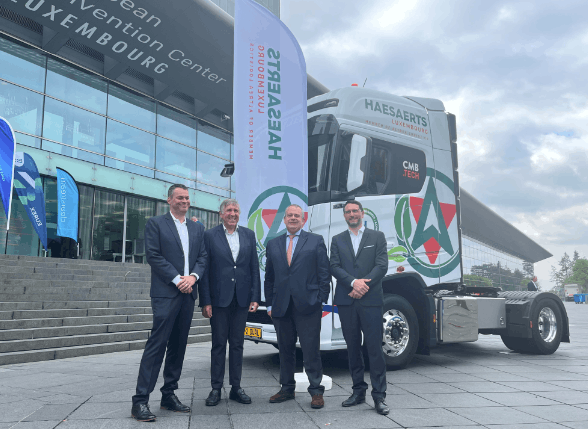The station in the industrial zone of Wolser A in Bettembourg should be operational at the end of 2022 or start of 2023, and should cater to the needs of light, commercial and heavy goods vehicles powered by hydrogen. There is currently only one private owner of a hydrogen car in the grand duchy, but the government offers a subsidy of up to €8,000 for those who adopt the alternative to fossil fuel cars.
Hydrogen only emits water vapor and warm air, unlike petrol, but is only truly carbon-neutral if the energy used for its production also comes from renewable sources. The government is aware of that, as Turmes underlines, saying it will prioritise “green hydrogen”.
Finding alternatives ahead of fossil fuel ban
The hydrogen pump is part of a larger EU initiative--“H2Benelux”--which wants to implement eight stations in the region with the help of eight companies. TotalEnergies--which also aims to open multi-energy stations in Luxembourg down the line--will be in charge of the project in the grand duchy. The company was represented by Nicolas Leblond and Eric Bleyer, during the presentation positioned itself as “a major actor of the energy transition”.
The entire project has a budget of €17.5m, according to H2Benelux’s .
“The deployment of a reliable alternative fuel supply network for transport is crucial to cope with the upcoming ban on fossil fuel cars, to contribute to the achievement of the "Green Deal" targets and to reach carbon neutrality in Europe by 2050, " says Richard Ferrer, Head of Alternative Fuels at CINEA, the European Executive Agency for Climate Infrastructure and the Environment in a statement.
Bausch for his part is “delighted that the Grand Duchy of Luxembourg is already ensuring that the necessary alternative fuel infrastructure is in place to facilitate the transition to these technologies.”
Why the hydrogen alternative gathers support
While electric vehicles and charging stations have been pushed by the government--the country aims for 49% of all cars to be e-cars by 2030--this alternative is not adapted to some types of vehicles yet. Lorries, ships, trains and planes are “difficult to decarbonise by direct electrification,” as Turmes explains. Hydrogen, which can be stored, offers a zero-emission alternative, if its production is also green.
The announcement of Luxembourg’s first public hydrogen pump aligns with EU commission president Ursula von der Leyen’s revelation on 14 September that the EU would to help guarantee the purchase of hydrogen by using innovation fund resources.
